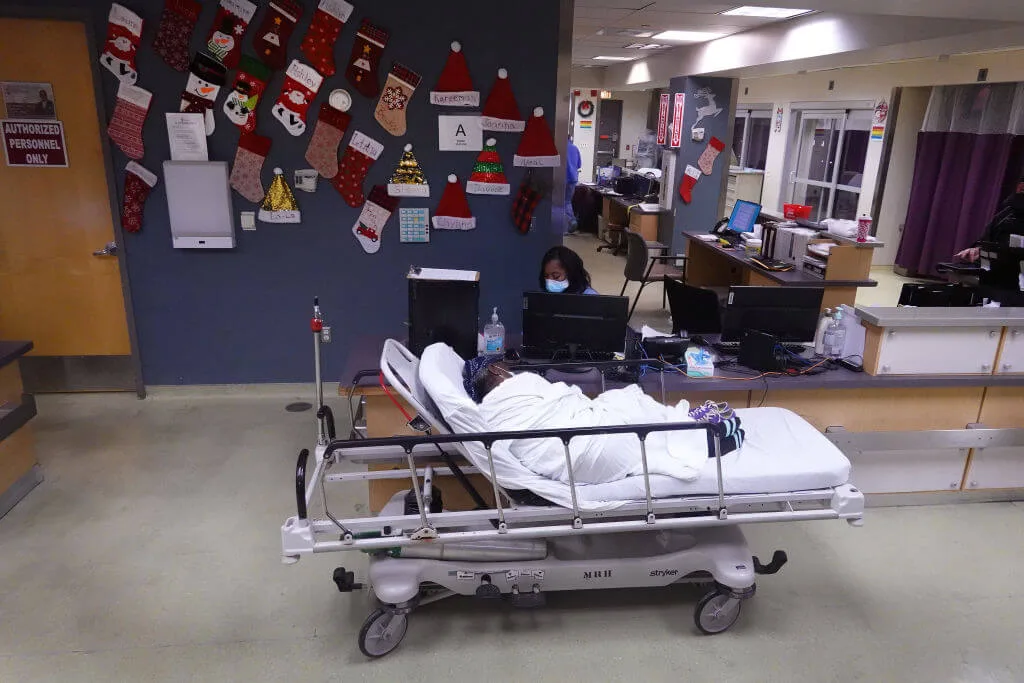
A patient awaits treatment in the emergency room at Roseland Community Hospital in Chicago, Illinois. (Photo by Scott Olson/Getty Images)
This winter cold of the holiday season has brought about an expected surge in COVID cases, but it has also resulted in a number of other illnesses that were not expected, or not expected to hit as hard as they have.
Along with the increase of COVID cases, hospitals and doctors’ offices have also seen a significant uptick in cases of the flu, and also in cases of RSV, or respiratory syncytial virus. The three conditions share a number of symptoms, and are often hard to tell apart from one another. Some have taken to calling the convergence a ‘Triple-demic’ and cases are now rising rapidly enough that the CDC is once again recommending masking to minimize the threat during the holiday season.
While hospitals are not overrun, many report case numbers that put them close to capacity, but not yet strained enough to engage in any of the emergency procedures that became so common at the height of the COVID-19 pandemic.
Of the current increase in cases, it appears that flu cases are outpacing the rest. Data from the Pennsylvania Department of Health had the flu case count at over double the norm based on data released early in December.
While the surge can be seen in hospitals across the state, it can also be seen in the pharmacies and stores, where shelves of cold and flu medications are being emptied as quickly as they can be filled.
To help manage supply, many stores are limiting the number of items a customer can purchase in a single visit. CVS Health has placed a two-item limit on children’s cold and flu medications, and Walgreens, which has not yet limited in-store purchases, has placed a six-item limit on online purchases of the same products.
While manufacturers say there is no national shortage of these products, local shortages can and do occur, and local doctors are often the best resource when this happens. Due to familiarity with local outbreaks, a family doctor will likely have some insight into where and when medicine can be purchased over the counter locally, and what alternatives might be available.
While manufacturers say they can produce enough to fill the need, it is likely that some form of shortage will persist into the early part of the next year, but experts do not believe it will be a long-term problem.
Politics

How Project 2025 aims to ban abortion in Pennsylvania
Former president Donald Trump said abortion was a state’s rights issue recently, but conservative organizations, under the banner “Project 2025,”...

736,000 PA households could lose crucial help on their internet bills
Time is running out for the Affordable Connectivity Program, which provides low-cost high speed internet access for over 736,000 Pennsylvania...

What to know about Trump’s legal issues
Over the past year, former president Donald Trump has become the center of not one, not two, not three, but four criminal investigations, at both...
Local News

Conjoined twins from Berks County die at age 62
Conjoined twins Lori and George Schappell, who pursued separate careers, interests and relationships during lives that defied medical expectations,...

Railroad agrees to $600 million settlement for fiery Ohio derailment, residents fear it’s not enough
Norfolk Southern has agreed to pay $600 million in a class-action lawsuit settlement for a fiery train derailment in February 2023 in eastern Ohio,...





